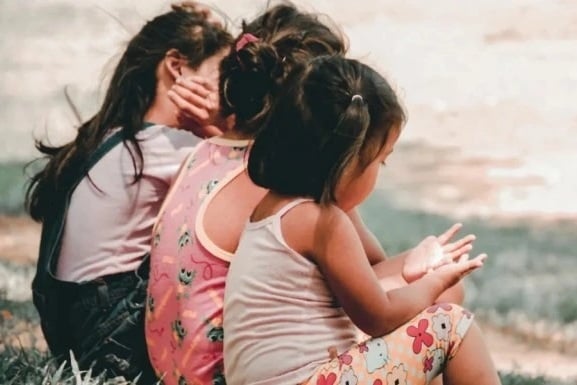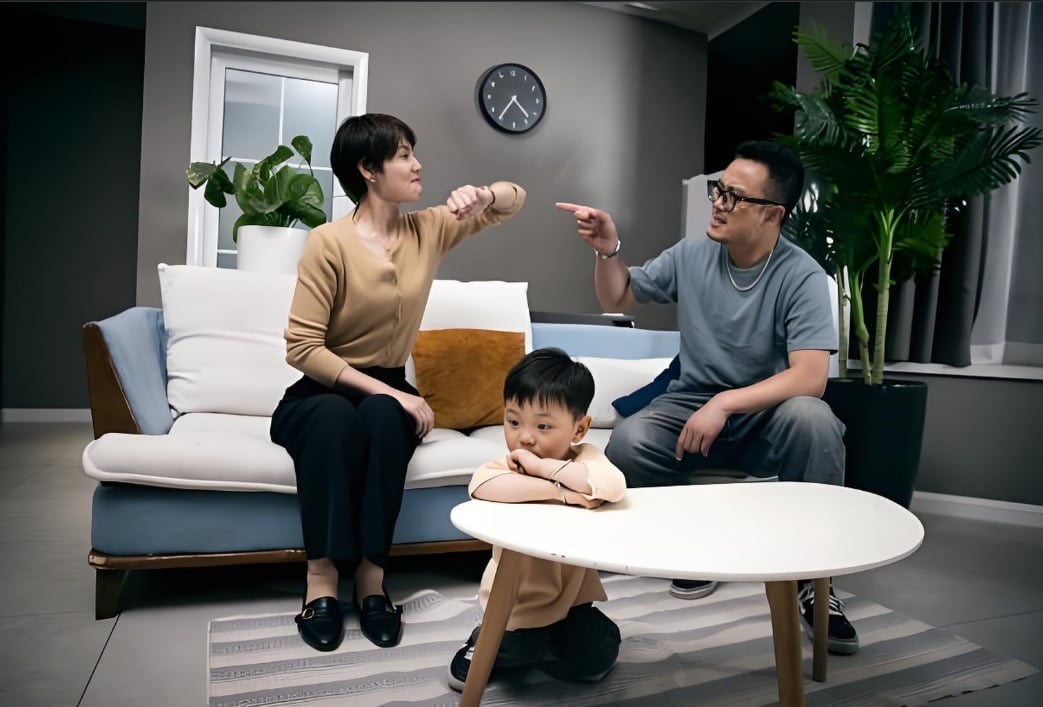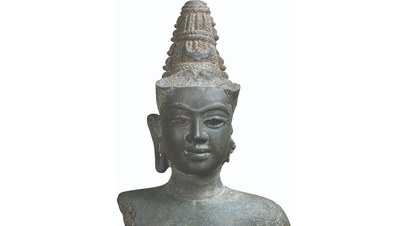In each family, the position of each child is somewhat different. Some children are the pride of the whole family, some children feel inferior to their siblings, some children are very good at resolving conflicts in the family, and some children seem to never grow up...
In general, each child in the family has a different role and position. This has a long-term impact on the way that individual child lives, even when the child has entered adulthood.
Without proper self-awareness and adjustment, negative influences may arise, affecting each child's personal life.
British psychologist Reenee Singh says she often finds that the problems a person faces start with their childhood psychology. Ms. Singh helps her clients identify their own problems so they can live a more balanced, happy, and meaningful life.
According to Ms. Singh, each child in the family usually holds one of the five typical roles below, each role has its own advantages and disadvantages.
"The Golden Child"

Many children who are the "golden children" of the family have to endure prolonged stress due to pressure (Illustration: iStock).
Every family has a “golden child”, who may be the best student or the one with the most impressive achievements. Parents give this child the most praise. This sounds great, but in reality, the child who stands out from his or her siblings often suffers psychological stress.
The child who is considered the “golden child” of the family often has to bear the burden of both parental expectations and the jealousy of his or her siblings. This can lead to surprisingly rebellious behavior when he or she enters adulthood.
Many children who are the "golden children" of their families have to endure prolonged stress due to pressure. They are afraid of disappointing their families and always feel that they are not good enough, talented enough, or successful enough.
When consulting with these clients, Singh often emphasizes that no one is perfect. Sometimes, she even encourages clients to be a little more rebellious, to do things that make them happy and comfortable, to gradually understand how to live their true self.
Living true to their nature and inclinations will help their relatives gradually have a more accurate and realistic view of the family's "golden child".
"Black sheep"

In adulthood, "black sheep" children are prone to have inferiority complex (Illustration: iStock).
The nickname "black sheep" is often given to children who do not meet their parents' expectations, or even cause incidents that disappoint and upset their parents. Often, "black sheep" children are more relaxed by their parents, because in reality, parents will focus more on the "golden child" of the family.
The "black sheep" child who is often punished and scolded by his parents will have a somewhat lonely mentality, often feeling ashamed and embarrassed in front of relatives. This child often feels that all sins originate from him.
In adulthood, the "black sheep" child is likely to have an inferiority complex, easily accepting other people's bad attitudes and behaviors towards him. The reason is that since childhood, the "black sheep" child has always had an inferiority complex, feels that he often makes mistakes, and is often punished.
When working with clients who were once the “black sheep” in their families, Singh found that these clients still carried the psychological burden of inferiority and shame that had been with them since childhood. Singh tried to help clients understand that they needed to be more confident, to shed the psychological burden that had been with them since childhood.
Eldest son

The eldest child often has a clear sense of responsibility towards the family (Illustration: iStock).
In many families, the eldest child has a special role in relation to his or her younger siblings. This child is often assigned by his or her parents to look after and care for his or her younger siblings when the parents are busy or away from home. Therefore, the eldest child often feels responsible for his or her younger siblings.
Later, when parents get old and their health declines, the eldest son often finds himself with the greatest responsibility for taking care of his parents. The eldest son is used to shouldering responsibilities and always tends to take on more duties.
Eldest children often have a strong sense of responsibility towards their family. They may place high demands on their spouse and children. They may be critical and demanding in the eyes of their loved ones.
Taking on too much responsibility can leave the eldest child feeling overwhelmed and stressed. They often feel they lack the time and energy to pursue their own priorities.
Expert Singh often encourages his eldest child clients to share responsibilities with family members and encourage younger siblings to shoulder household chores with him.
"The child of the family"

As the "child of the family", this child will receive a lot of protection from relatives (Illustration: iStock).
This position is usually reserved for the youngest child in the family, although the “baby of the family” position can also be reserved for the child who is most vulnerable in the eyes of the parents, for example, the child with the worst health or weakest personality. Other family members often give special attention, care, and support to this member.
As the “family child,” this child will receive a lot of affection from relatives. This can be very sweet in the pre-adult years. However, as they grow up, the “family child” often finds it difficult to cope with adult life.
As a result, there are people who are not capable of facing and dealing with their personal problems. They avoid responsibility or neglect their obligations, knowing that someone close to them will come along and help them out of their problems.
When working with clients in this group, expert Singh always encourages them to take the initiative to "get out of character". In addition, their families also need to cooperate, need to stop being overly supportive, so that the "family child" can truly grow up.
Mediator

Being a peacemaker in the family can sometimes put an individual in a difficult situation (Illustration: iStock).
In many families, there is one child who is always able to mediate between conflicting parties, be it between parents or between siblings.
As a mediator, this individual often has very good negotiation skills, however, they will also experience psychological fatigue.
For example, they will have to understand the perspectives of the parties involved in the conflict. They will also have to endure the tiring dispute when each side wants to attract the "mediator" to their side, forcing the "mediator" to choose a side.
Being a mediator in the family can sometimes put an individual in a difficult and stressful situation. Expert Singh's advice is that "mediators" need to know how to protect themselves psychologically from family conflicts, avoiding being forced to choose a side.
In families where relationships are often unstable, the "mediator" needs to know how to create boundaries for all parties to adhere to, avoiding being put in the position of having to act as the mediator on a regular basis.
Sometimes, they also need to know how to refuse the role of mediator with simple dialogues like: "If you have a problem with X, please talk to her directly and resolve the problem. I don't want to get involved in this matter."
According to Daily Mail
Source: https://dantri.com.vn/giao-duc/van-de-cua-dua-be-vang-va-cuu-den-trong-gia-dinh-20241109182645687.htm






































































![[Infographic] Circular guiding the functions, tasks and powers of the provincial Department of Culture, Sports and Tourism and the commune-level Department of Culture and Social Affairs](https://vphoto.vietnam.vn/thumb/402x226/vietnam/resource/IMAGE/2025/6/29/877f24989bb946358f33a80e4a4f4ef5)

































Comment (0)